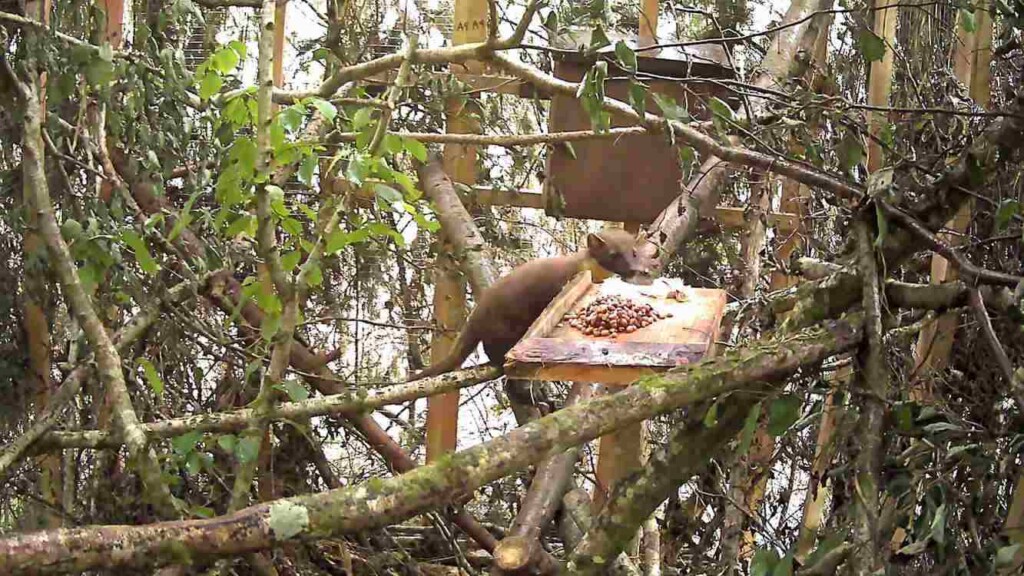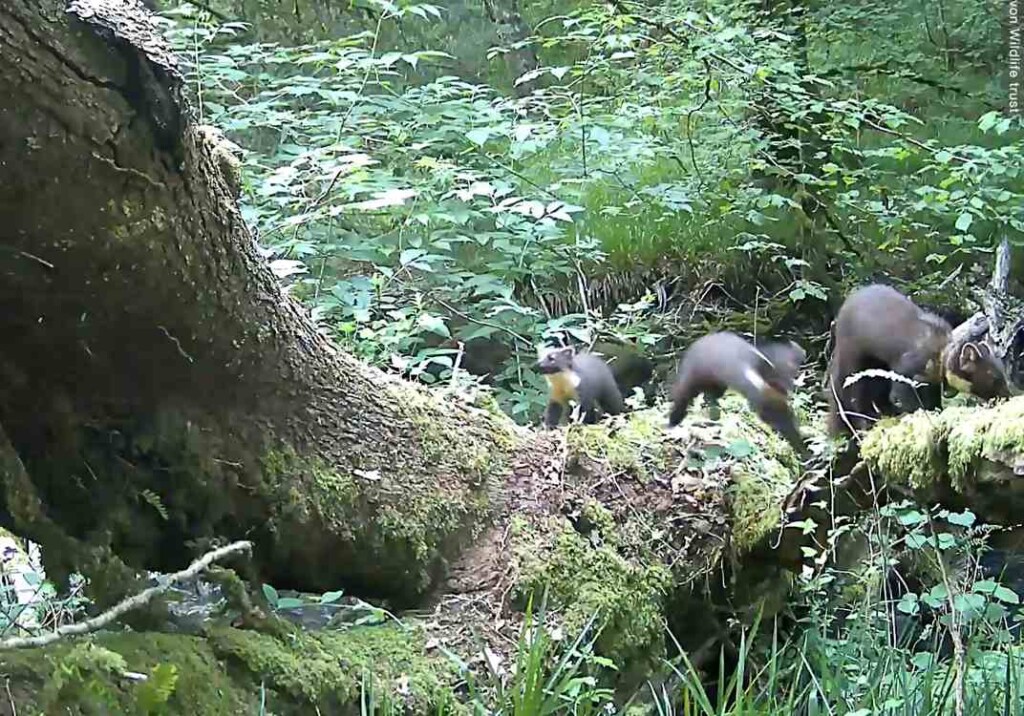
Camera trap footage has conservationists celebrating what are probably the first pine martens born in southwest England in over 100 years.
Their births follow a “pioneering” reintroduction project that sought to rebalance the predator-prey dynamics of a wild England by bringing back these arboreal, small game specialists.

The project saw the release of 15 pine martens, eight females and seven males, at undisclosed locations in England’s southwest back in autumn 2024. Now camera trap footage has revealed the first glimpses of kits, recorded at a secret site in Dartmoor National Park in June this year.
Devon Wildlife Trust’s Tracey Hamston, who leads the Two Moors Pine Marten Project, described the news as a “historic moment” and admitted the team were “ecstatic” when they saw the footage.
“When our volunteers discovered the footage of pine marten kits on one of our trail cameras we were ecstatic,” she said. “This is a historic moment for the return of a native animal and for the future of the southwest’s woodlands.”
“To have breeding pine martens back after a century’s absence signals a positive step in nature’s recovery. It’s also testament to the many hours work undertaken by the project partnership and dozens of local volunteers,” she concluded.
Two videos show the adorable youngsters exploring their new home, and in another, three kits are seen chasing each other through foliage and up a bank in their Dartmoor woodland home, before disappearing from sight.

Another film shows the same mother with two kits as they scamper along a fallen tree close to a fast-running stream.
Part of the Mustelidae family that includes weasels and ferrets, martens were once common in the southwest of England but fell victim to the loss of their favored woodland habitat and the fur trade.
Since the animals’ release in September 2024, the team has spent hundreds of hours tracking the movements of the 15 pine martens, installing den boxes for them, and checking camera traps to learn more about their whereabouts and behavior.
“Staff and volunteers have been checking camera traps for several months and over the past few weeks have been eagerly anticipating seeing kits,” said Jack Hunt, Woodland Trust Assistant Site Manager at Devon said. “This sighting is wonderful news.”
Female pine martens usually give birth to two or three kits in spring, and the youngsters spend their first seven to eight weeks hidden in their dens before emerging in early summer. They then stay with their mothers through autumn and into winter, before becoming fully independent the following spring.
The animals have been brought back to the region thanks to the work of the Two Moors Pine Marten Project: a partnership of seven organizations including among others Dartmoor National Park Authority and Devon Wildlife Trust.
MARTENS BACK IN THE US: American Marten May Be Set for Return to Pennsylvania Forests After 100 Year Absence
Project experts anticipate that the southwest’s population should now grow gradually over coming years. Their nocturnal habits and elusive nature mean sightings are likely to be rare.
The project is now preparing for a further release of animals in autumn 2025. After rigorous health checks by vets, the animals (likely to number around 20 in total) will be released with landowner permissions at secret locations on Exmoor, the other “moor” in the “Two Moors” Pine Marten Project.
MORE REWILDING PROJECTS: ‘Give Nature Space and it Will Come Back’: Rewilding Returns Endangered Species to UK Coast
“Exmoor’s woodlands are well-suited to the animals,” said Hamston. “Their arrival in early autumn will coincide with the local natural harvest of wild berries—food which pine martens love.”
The Two Moors Pine Marten Project is keen to hear from anyone who does come across one of the beautiful animals in Devon; people can get in touch on their website.
SHARE This Cute And Important Animal Returning To England…
